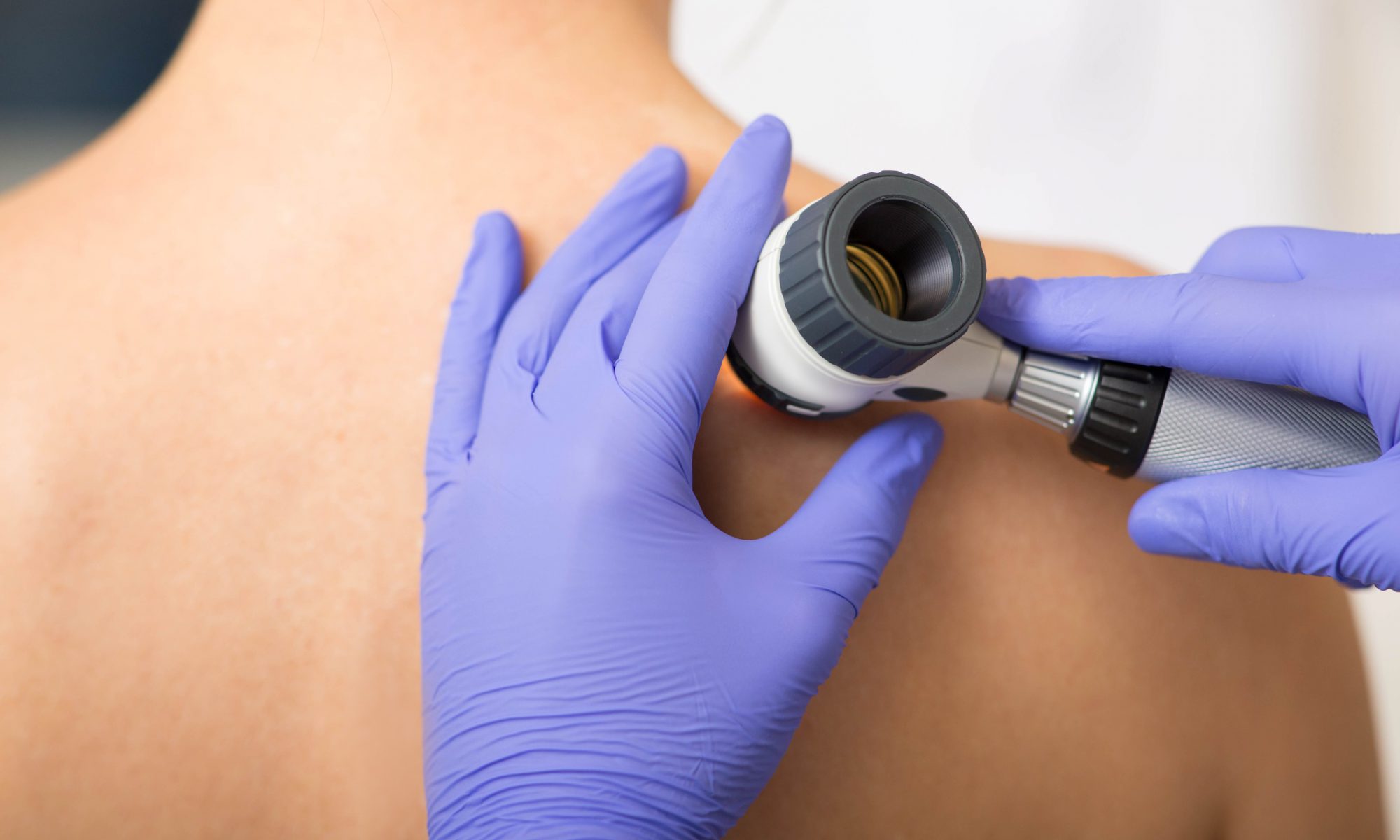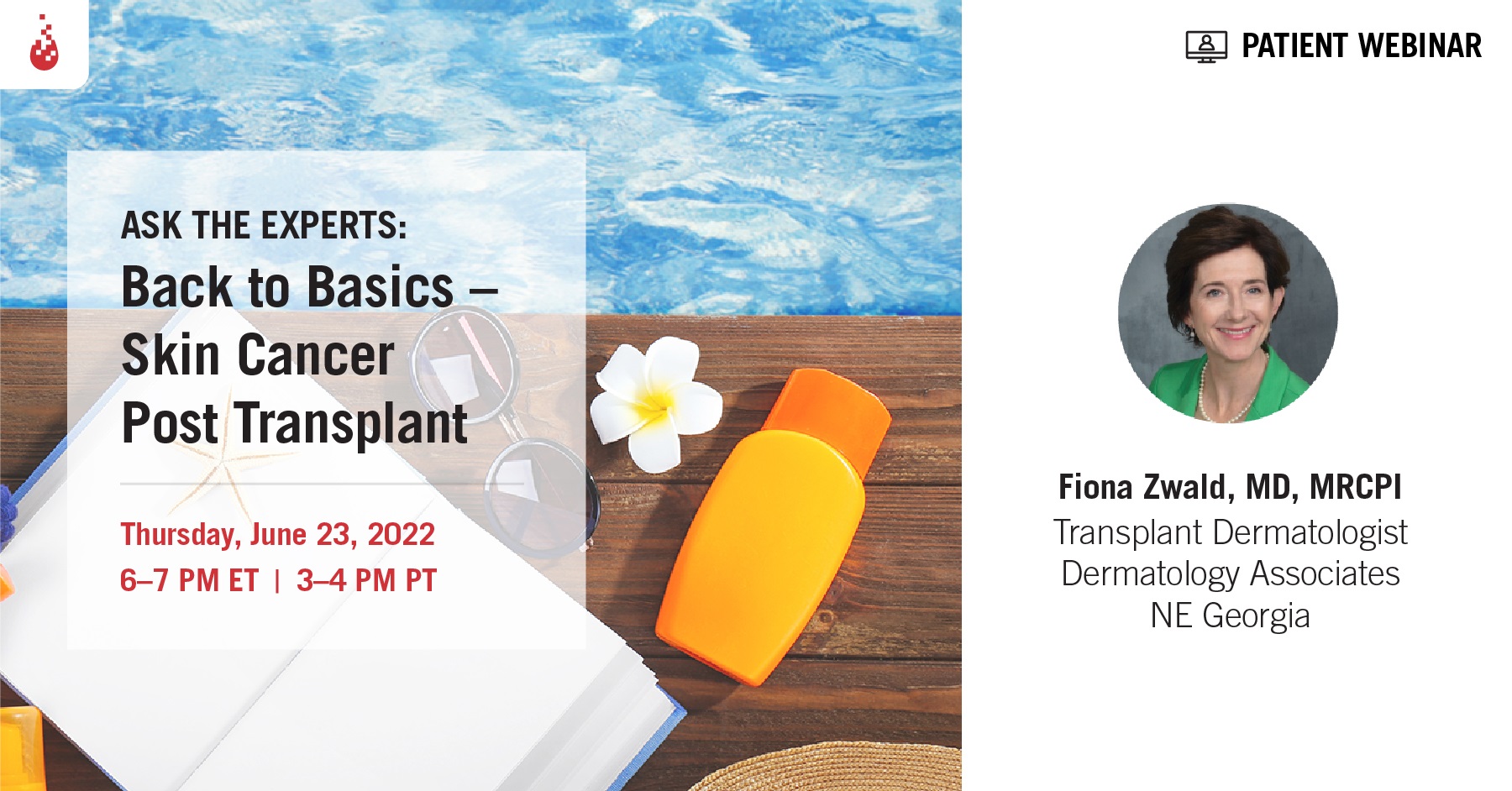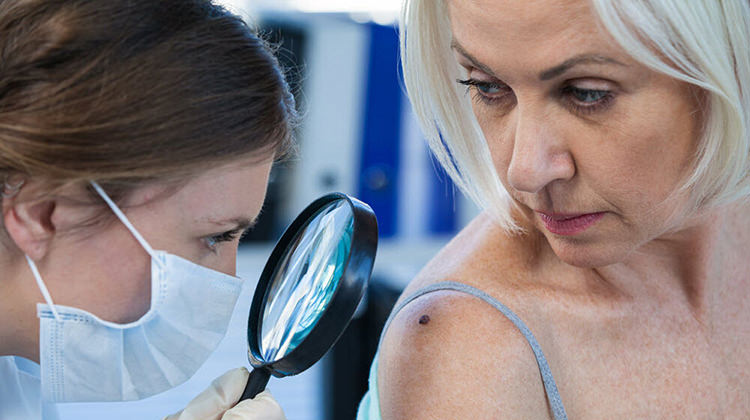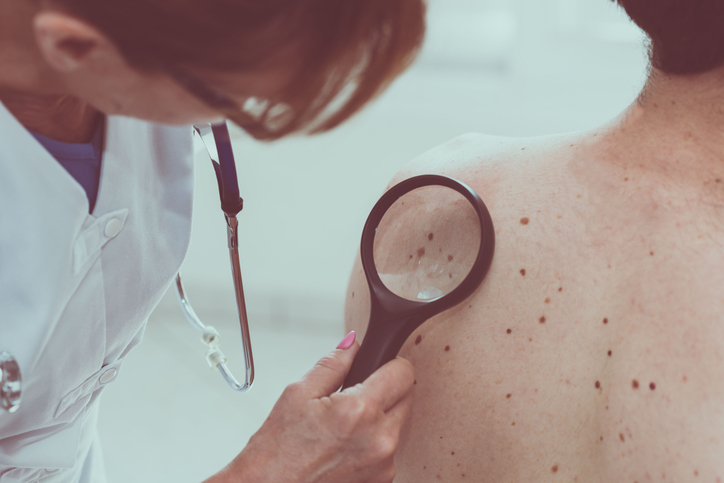Loading
By Gabrielle Capaldo
Skin self-examination is a viable secondary prevention method for the early detection of primary melanoma and should be promoted to patients, according to an article published in the Journal of the American Academy of Dermatology.
While reducing melanoma mortality by removing early-stage melanomas has long been a goal for dermatologists, the authors of this article believe that physician-led screenings of asymptomatic adults have done little to achieve this goal. Read the full article in Healio.
Loading
Loading
As a transplant recipient, you seek to protect your health in many ways, including taking immunosuppressant medications. By preventing your immune system from rejecting your new organ, these therapies play a critical role in your care. But they also come with side effects, including an increased risk for skin cancer.
Fortunately, you can work with your doctors to prevent skin cancer or detect it early, when it’s most treatable. Getting screened for skin cancer during appointments, checking yourself for skin changes at home and following sun protection guidelines can help keep you healthy. Read the full article on CareDx.com.
Loading
Loading
June 23, 2022
@
3:00 pm
–
4:00 pm
What You’ll Learn
As we gear up for some fun in the sun this summer, let’s talk about sun safety and the higher risk of skin cancer for post-transplant recipients. Join CareDx for this interactive webinar featuring Dr. Fiona Zwald, transplant dermatologist in Georgia, to learn all about the importance of staying on top of your skin care. You will also be able to ask your questions live!
Topics to be covered include:
– Reasons for the high risk of skin cancer in post-transplant recipients
-How often to see a dermatologist
-Precautions you can take
-Tips for taking care of your skin, and more!
Location
This is a virtual webinar — all members of the transplant community are welcome to attend!
Loading
Loading
What Patients Need to Know
“Organ transplant patients are at a higher risk — up to a 100-fold higher — for developing skin cancer compared to the general population. Transplant patients tend to develop a skin cancer called squamous cell carcinoma and Kaposi sarcoma. Many patients also develop a skin cancer called basal cell carcinoma and melanoma.
This higher risk is caused by immunosuppressive medications, which are essential to transplant patients to prevent graft rejection and optimize graft survival. Because these medications suppress the immune system that fights off infection and prevents the development of cancer, transplant recipients are at elevated risk for infection and certain cancers.”
Learn more information, here.
Loading
Loading
“With over 5 million cases diagnosed in the United States each year, skin cancer is America’s most common cancer. Fortunately, skin cancer is also one of the most preventable forms of cancer. About 90 percent of nonmelanoma skin cancers and 85 percent of melanoma cases are associated with exposure to ultraviolet radiation from the sun. By sharing facts about the dangers of unprotected exposure and encouraging people to check their skin for warning signs, we can and will save lives.
We can’t do this work alone.
In 2021, for the second straight year, Skin Cancer Awareness Month takes place during the COVID-19 pandemic. Even though many of us are separated, we can still unite against skin cancer, share the facts and help save lives.”
Learn more information, here.
Loading
Loading
“The world-first treatment being developed at The University of Queensland is the only drug of its type that could prevent the incidence of skin cancers for transplant patients.
Lead researcher from UQ’s Diamantina Institute Dr. James Wells said the treatment was shown in models to clear skin tumors that grow as a consequence of taking tacrolimus—a drug that transplant patients must take to suppress their immune systems to avoid organ rejection.”
Read the full article, here.
Loading



